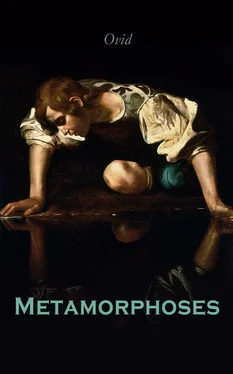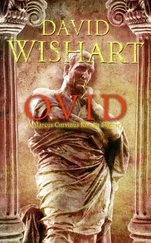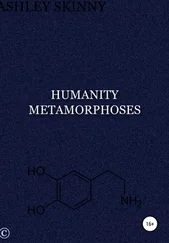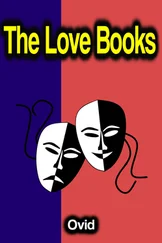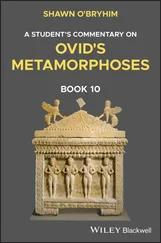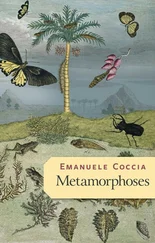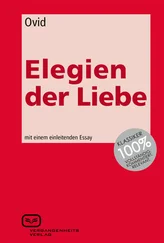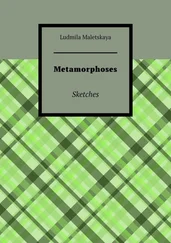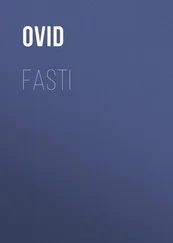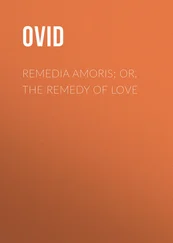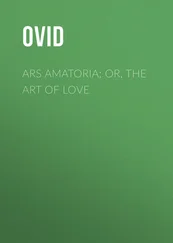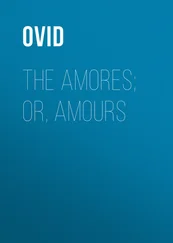Jupiter had seen Io as she was returning from her father’s stream, and had said, “O maid, worthy of Jove, and destined to make I know not whom happy in thy marriage, repair to the shades of this lofty grove (and he pointed at the shade of the grove) while it is warm, and while the Sun is at his height, in the midst of his course. But if thou art afraid to enter the lonely abodes of the wild beasts alone, thou shalt enter the recesses of the groves, safe under the protection of a God, and that a God of no common sort; but with me , who hold the sceptre of heaven in my powerful hand; me , who hurl the wandering lightnings—Do not fly from me;” for now she was flying. And now she had left behind the pastures of Lerna, 98and the Lircæan plains planted with trees, when the God covered the earth far and wide with darkness overspreading, and arrested her flight, and forced her modesty.
The Greeks frequently embellished their mythology with narratives of Phœnician or Egyptian origin. The story of Io probably came from Egypt. Isis was one of the chief divinities of that country, and her worship naturally passed, with their colonies, into foreign countries. Greece received it when Inachus went to settle there, and in lapse of time Isis, under the name of Io, was supposed to have been his daughter, and the fable was invented which is here narrated by Ovid.
The Greek authors, Apollodorus, Strabo, Diodorus Siculus, and Pausanias, say that Io was the daughter of Inachus, the first king of Argos; that Jupiter carried her away to Crete; and that by her he had a son named Epaphus, who went to reign in Egypt, whither his mother accompanied him. They also tell us that she married Apis, or Osiris, who, after his death, was numbered among the Deities of Egypt by the name of Serapis. From them we also learn that Juno, being actuated by jealousy, on the discovery of the intrigue, put Io under the care of her uncle Argus, a man of great vigilance, but that Jupiter having slain him, placed his mistress on board of a vessel which had the figure of a cow at its head; from which circumstance arose the story of the transformation of Io. The Greek writers also state, that the Bosphorus, a part of the Ægean sea, derived its name from the passage of Io in the shape of a cow.
Jupiter, having changed Io into a cow, to conceal her from the jealousy of Juno, is obliged to give her to that Goddess, who commits her to the charge of the watchful Argus. Jupiter sends Mercury with an injunction to cast Argus into a deep sleep, and to take away his life.
In the meantime Juno looked down upon the midst of the fields, and wondering that the fleeting clouds had made the appearance of night under bright day, she perceived that they were not the vapors from a river, nor were they raised from the moist earth, and then she looked around to see where her husband was, as being one who by this time was full well acquainted with the intrigues of a husband who had been so often detected. 99After she had found him not in heaven, she said, “I am either deceived, or I am injured;” and having descended from the height of heaven, she alighted upon the earth, and commanded the mists to retire. He had foreseen the approach of his wife, and had changed the features of the daughter of Inachus into a sleek heifer. 100As a cow, too, she is beautiful. The daughter of Saturn, though unwillingly, extols the appearance of the cow; and likewise inquires, whose it is, and whence, or of what herd it is, as though ignorant of the truth. Jupiter falsely asserts that it was produced out of the earth, that the owner may cease to be inquired after. The daughter of Saturn begs her of him as a gift. What can he do? It is a cruel thing to deliver up his own mistress, and not to give her up is a cause of suspicion. It is shame which persuades him on the one hand, love dissuades him on the other. His shame would have been subdued by his love; but if so trifling a gift as a cow should be refused to the sharer of his descent and his couch, she might well seem not to be a cow.
The rival now being given up to her , the Goddess did not immediately lay aside all apprehension; and she was still afraid of Jupiter, and was fearful of her being stolen, until she gave her to Argus, the son of Aristor, to be kept by him . Argus had his head encircled with a hundred eyes. Two of them used to take rest in their turns, the rest watched, and used to keep on duty. 101In whatever manner he stood, he looked towards Io; although turned away, he still used to have Io before his eyes. In the daytime he suffers her to feed; but when the sun is below the deep earth, he shuts her up, and ties a cord round her neck undeserving of such treatment . She feeds upon the leaves of the arbute tree, and bitter herbs, and instead of a bed the unfortunate animal lies upon the earth, that does not always have grass on it , and drinks of muddy streams. And when, too, she was desirous, as a suppliant, to stretch out her arms to Argus, she had no arms to stretch out to Argus; and she uttered lowings from her mouth, when endeavoring to complain. And at this sound she was terrified, and was affrighted at her own voice.
She came, too, to the banks, where she was often wont to sport, the banks of her father , Inachus; and soon as she beheld her new horns in the water, she was terrified, and, astonished, she recoiled from herself. The Naiads knew her not, and Inachus himself knew her not, who she was; but she follows her father, and follows her sisters, and suffers herself to be touched, and presents herself to them, as they admire her . The aged Inachus held her some grass he had plucked; she licks his hand, and gives kisses to the palms of her father. Nor does she restrain her tears; and if only words would follow, she would implore his aid, and would declare her name and misfortunes. Instead of words, letters, which her foot traced in the dust, completed the sad discovery of the transformation of her body. “Ah, wretched me!” exclaims her father Inachus; and clinging to the horns and the neck of the snow-white cow, as she wept, he repeats, “Ah, wretched me! and art thou my daughter, that hast been sought for by me throughout all lands? While undiscovered, thou wast a lighter grief to me , than now, when thou art found. Thou art silent, and no words dost thou return in answer to mine; thou only heavest sighs from the depth of thy breast, and what alone thou art able to do, thou answerest in lowings to my words. But I, in ignorance of this , was preparing the bridal chamber, and the nuptial torches for thee; and my chief hope was that of a son-in-law, my next was that of grandchildren. But now must thou have a mate from the herd, now, too , an offspring of the herd. Nor is it possible for me to end grief so great by death; but it is a detriment to be a God; and the gate of death being shut against me, extends my grief to eternal ages.”
While thus he lamented, the starry Argus removed her away, and carried the daughter, thus taken from her father, to distant pastures. He himself, at a distance, occupies the lofty top of a mountain, whence, as he sits, he may look about on all sides.
Nor can the ruler of the Gods above, any longer endure so great miseries of the granddaughter of Phoroneus; 102and he calls his son Mercury , whom the bright Pleiad, Maia , 103brought forth, and orders him to put Argus to death. There is but little delay to take wings upon his feet, and his soporiferous wand 104in his hand, and a cap for his hair. 105After he had put these things in order, the son of Jupiter leaps down from his father’s high abode upon the earth, and there he takes off his cap, and lays aside his wings; his wand alone was retained. With this, as a shepherd, he drives some she-goats through the pathless country, taken up as he passed along, and plays upon oaten straws joined together.
Читать дальше
